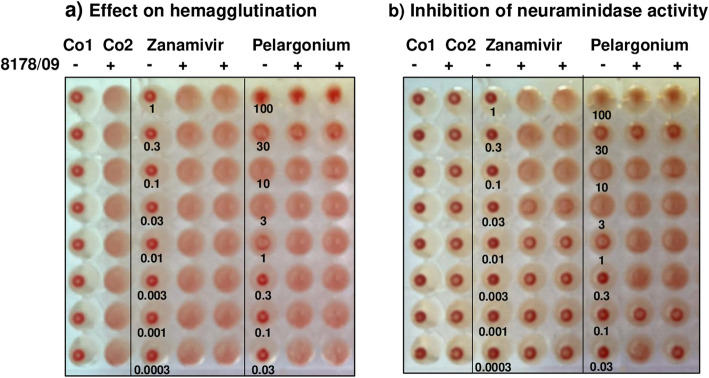Fig. 4.
Representative photographs visualizing the effects of pelargonium extract on virus-mediated hemagglutination and viral neuraminidase activity. a Effect on hemagglutination: Four hemagglutination units of influenza virus A/Jena/8178/2009 (8178/09: +) or phosphate-buffered saline (8178/09: -) were mixed with phosphate-buffered saline or with serial half-logarithmic dilutions of zanamivir (1 to 0.0003 nM) or pelargonium extract (100 to 0.03 μg/mL). Then we added a human erythrocyte solution at 4° for 2 h. No hemagglutination occurs in the absence of virus in control 1 (Co1). Control 2 shows the virus-mediated hemagglutination of mock-treated human erythrocytes (Co2). Pelargonium extract induced a hemagglutination at 3 and 10 μg/mL and blocked the influenza virus-mediated hemagglutination at 30 and 100 μg/mL. b Inhibition of viral neuraminidase activity: After protocolling the effect on hemagglutination, we further incubated the test at 37 °C overnight. In the absence of inhibitors, the activated viral neuraminidase abolished the virus-mediated hemagglutination as seen in Co2. Both zanamivir and pelargonium extract blocked the neuraminidase activity with minimal inhibitory concentrations of 0.03 μM and 0.3 μg/mL, respectively. We repeated the experiments once to confirm the inhibitory effects

